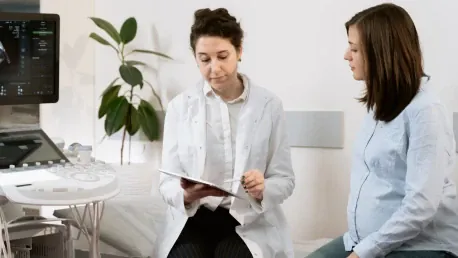The trial of handheld translation devices in a network of eight GP surgeries in Southampton has demonstrated impressive results, paving the way for improved communication with 5,850 non-English-speaking patients. This innovative trial spanned several months, from April 2024 to August 2024, and was conducted in collaboration with SCALE Innovation. These efforts aimed to assess the impact of Pocketalk, a handheld translation device, on patient interactions in primary care settings. This device promises a transformative approach to ensuring equitable healthcare access for non-English-speaking communities.
Enhancing Communication in Medical Settings
Impact on Staff and Patient Interactions
Dave Barclay, managing partner at Living Well Partnership, highlighted the significant improvements in communication with non-English-speaking patients due to the Pocketalk device. Staff members across various roles reported increased ease of communication, ranging from patient registration at the front desk to clear communications during nursing procedures. The device proved to be invaluable, especially in routine nurse consultations and community pharmacy settings, ensuring that patients received clear information in their native languages. This advancement contributed to a more inclusive and efficient healthcare experience.
During the trial phases, the results were notably positive. Front desk interactions, routine nurse consultations, and use in community pharmacy settings demonstrated high satisfaction levels among patients. Out of the 5,850 participants, an overwhelming 100% of those who used the Pocketalk device indicated that they would use it again. Furthermore, 93% of the users found the device to be user-friendly, and 83% expressed a preference for it over traditional telephone-based interpretation systems. These statistics underscore the device’s potential to revolutionize patient interactions in primary care settings.
Addressing Limitations of Traditional Interpretation Services
Phil Evans from SCALE Innovation underscored the efficiency benefits that the Pocketalk device brought to healthcare communication. Traditional telephone-based interpretation services, while still relevant, often come with long wait times and limited availability of interpreters, especially for minority languages. These limitations frequently lead to extended appointment durations and additional stress for both patients and healthcare providers. By contrast, the Pocketalk device delivered on-the-spot translations, reducing waiting times and improving the overall patient experience. This demonstrated the tangible benefits of leveraging technology in healthcare to address such common pain points.
Pocketalk’s data further supported these findings, revealing that the device was used 100 times across five of the eight primary care settings involved in the trial. The device successfully translated 18 different languages, showcasing its versatility and broad applicability. Jess O’Dwyer from Pocketalk emphasized the critical nature of clear communication in healthcare contexts and the importance of breaking down linguistic barriers. Ensuring effective communication between healthcare providers and patients is crucial in delivering quality care and fostering trust in the healthcare system.
Support from Health Authorities and Future Prospects
Endorsement and Broader Implementation
The positive results of the trial garnered support from the National Institute for Health and Care Research (NIHR). Program director Mike Lewis acknowledged the Pocketalk device’s potential to enhance patient care by ensuring equitable access to healthcare services regardless of language obstacles. This endorsement from a reputable health authority further validated the device’s efficacy and potential for widespread adoption in healthcare settings. Following the trial, Pocketalk has engaged with various NHS trusts, GP practices, and integrated care systems, establishing its presence in 10 hospitals in Ireland, thus expanding its reach and impact.
In parallel, a similar trial for another handheld translation device has commenced in Northern Ireland’s Southern Trust area. This trial, spanning from September 2024 to March 2025, aims to further explore communication improvements in healthcare settings. The continued exploration and implementation of such innovative tools underscore the commitment to improving healthcare accessibility for non-English-speaking patients. These efforts align with broader goals of creating an inclusive healthcare system that caters to the diverse linguistic needs of the population.
Implications and Future Directions
The trial of handheld translation devices across eight GP surgeries in Southampton highlighted promising results, aiming to enhance communication with 5,850 non-English-speaking patients. The innovative trial took place over several months, from April 2024 to August 2024, in collaboration with SCALE Innovation. The goal was to evaluate the effectiveness of Pocketalk, a handheld translation device, in facilitating patient interactions in primary care environments. This device offers a groundbreaking method to ensure fair healthcare access for non-English speakers. The promising results showcased the potential of Pocketalk in bridging language barriers that often hinder the quality of care for non-English-speaking patients. By enabling real-time translation, this technology supports clinicians in delivering effective care and understanding the needs of their patients more accurately. This trial not only highlights a significant advancement in medical communication but also underscores the importance of inclusivity in healthcare, ensuring that language differences do not impede access to essential services.









